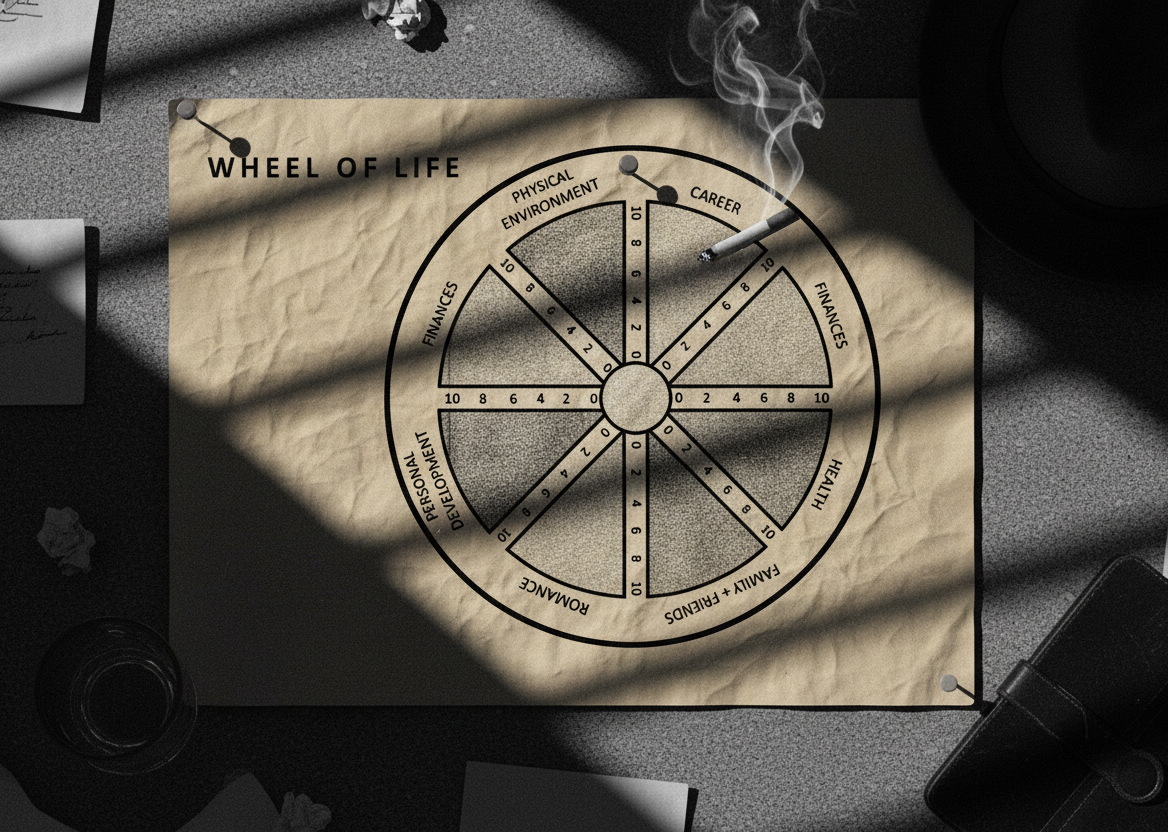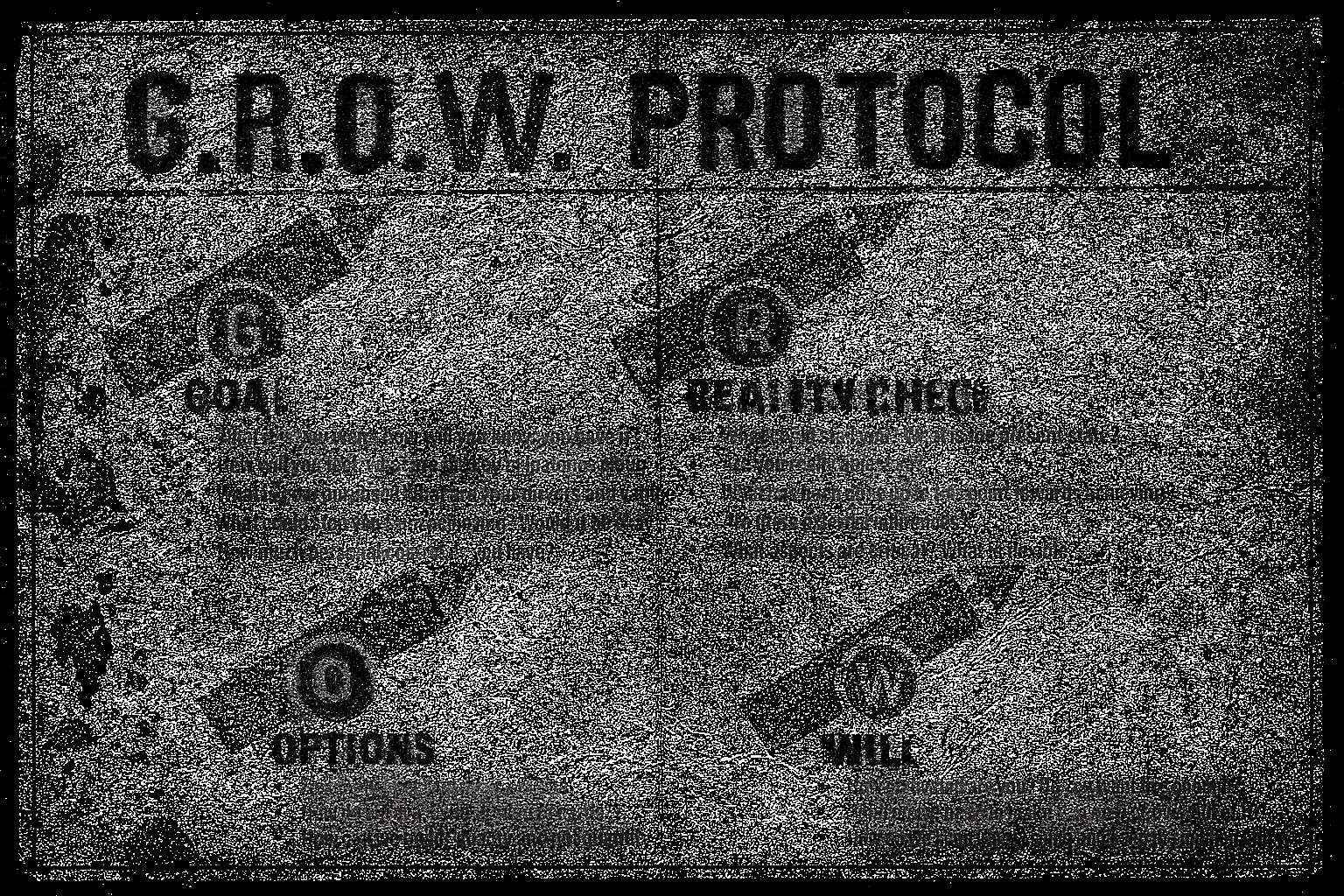On this beat, you're a lone operative in a city of factions. You work the spaces between departments, navigate the politics of stakeholders, and build fragile alliances with informants both inside and outside the walls. To survive, let alone win, you need a particular kind of mind.
The old guard was all about the facts and figures. The new breed, the true detectives, understand the game is played on two fronts. As the old firm Kierney and Co. pointed out, you have to master both sides of the brain:
The left brain is your Forensics Lab. It’s the cold, hard data, the market analysis, the contractual clauses. It’s the evidence you can slap on the table.
The right brain is your Street Smarts. It’s reading the room, sensing a bluff, knowing who to trust and how to turn a source. It's the intuition that tells you when the evidence lies.
A true leader in this game isn't just a number cruncher or a smooth talker; they are an artist of both. And that starts with understanding you can't see the whole board when you're a piece in the game.
The Confidential Informant: A Detective's Need for a Coach
It’s a fair question: why does a top operative need a handler? Why do the world's deadliest assassins have spotters? It's not about how sharp you are now; it's about how much sharper you're going to be.
Look at the history. Back in the 1800s, in the brutal game of American football, Yale hired a head coach. Harvard didn't. Over the next ten years, Harvard's pride was bled out on the field. They only won four times. It didn't take them long to wise up and get a coach of their own.
Dr. Atul Gawande, a surgeon who works under the brightest lights where a single slip means a flatline, tells a story about the violinist Itzhak Perlman. Perlman was a virtuoso, a legend. When asked how he got so good in a world where violinists didn't have coaches, he said, "I've always had a coach." His wife, a concert violinist herself, would sit in the audience during his practice sessions. Her feedback was his edge: "In the middle, you sounded mechanical. What's your play next time?" That outside perspective, he said, was everything.
When you operate alone, you develop blind spots. You miss the tells. You stop seeing the angles. A coach is your confidential informant - an outside set of eyes and ears whose only job is to give you the unvarnished truth, break down your moves, and help you build them back stronger. They don't have to be the best shot in the city; they just have to know how to make you better.
Here are a couple of classified tools from the coaching playbook. Run them on yourself. See what shakes loose.
Field Tool #1: The Surveillance Map (The Wheel of Life)
No operative can fight a war on all fronts at once. Sometimes, a high-stakes case demands all your attention, and other parts of your life go dark. A new job, a championship run - imbalance is part of the game. For a while.
The real danger is when the imbalance becomes permanent. When one neglected front creates a vulnerability that compromises the entire operation. This tool is a surveillance map of your life. It helps you identify your blind spots and redirect your assets.
Rate each sector from 0 (critical failure) to 10 (fully operational). How exposed are you? Remember, you don't need a perfect 10 everywhere. You just need to know where your weaknesses are before your enemies do.
Field Tool #2: The G.R.O.W. Protocol
This job is a pressure cooker. You're hit with calamities, betrayals, and dead ends. Growth isn't a luxury; it's a necessity. But a goal without a plan is just a ghost haunting your mind.
The G.R.O.W. protocol isn't a self-help memo; it's an interrogation framework you run on yourself. It gives your objectives structure and turns ambition into a viable tactical plan.
G - THE GOAL: What’s the target?
What does the win look like? How will you know when the case is closed?
What’s the real purpose? What are your driving motives?
What could stop you from taking the shot? What are you willing to risk?
R - REALITY CHECK: Assess the scene.
What could stall the operation? What’s the current situation on the ground?
Are you seeing the situation clearly, or are you following a bad lead?
What moves have you made so far? What external forces are in play?
O - OPTIONS: Map the angles of attack.
Flexibility creates options. How do you avoid building a house of cards that collapses with one bad move?
What are the different ways to approach the target?
How can you go for a clean, high-quality win, not just a messy firefight?
W - THE WILL: How bad do you want to close this case?
On a scale of 1-10, what's your motivation level? Is it high enough?
What assets or intel do you need to push this into the win column?
How do you maintain momentum when the trail goes cold?




